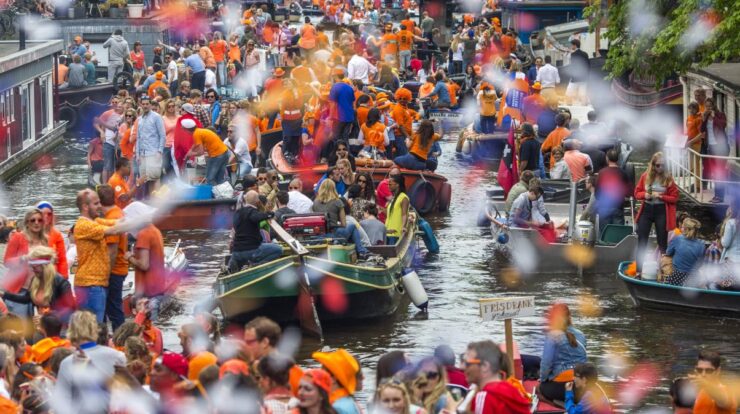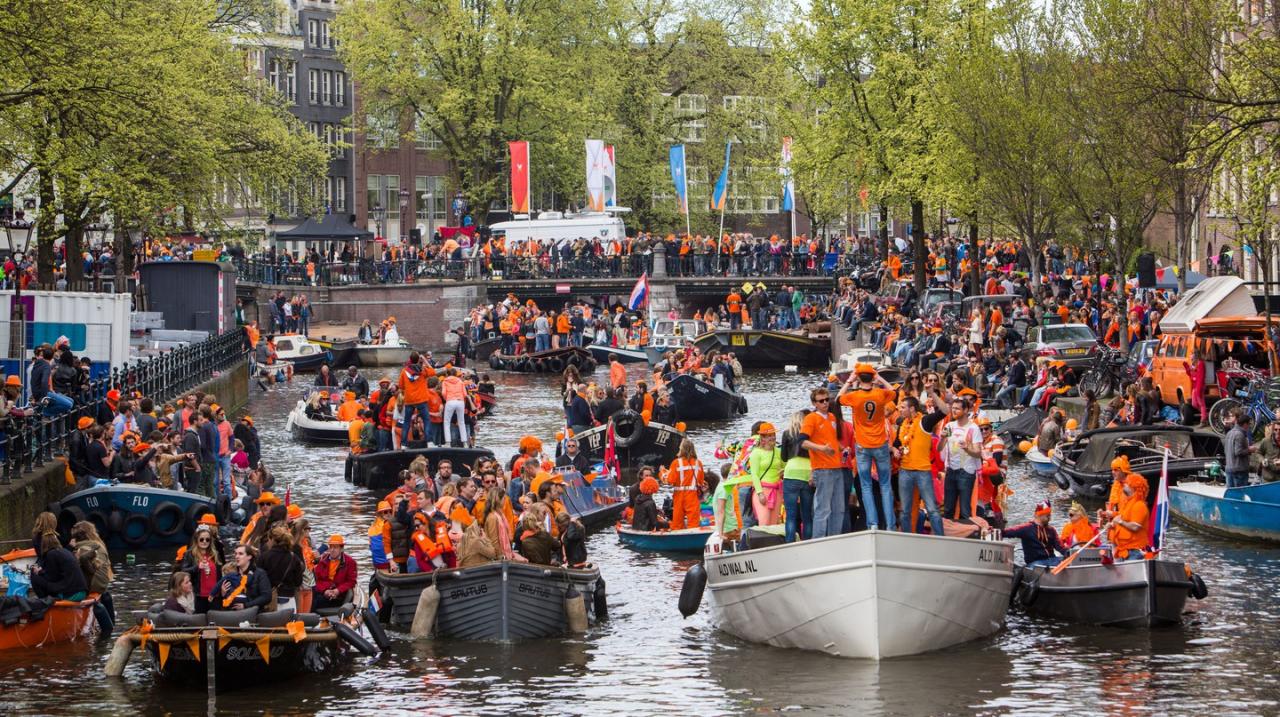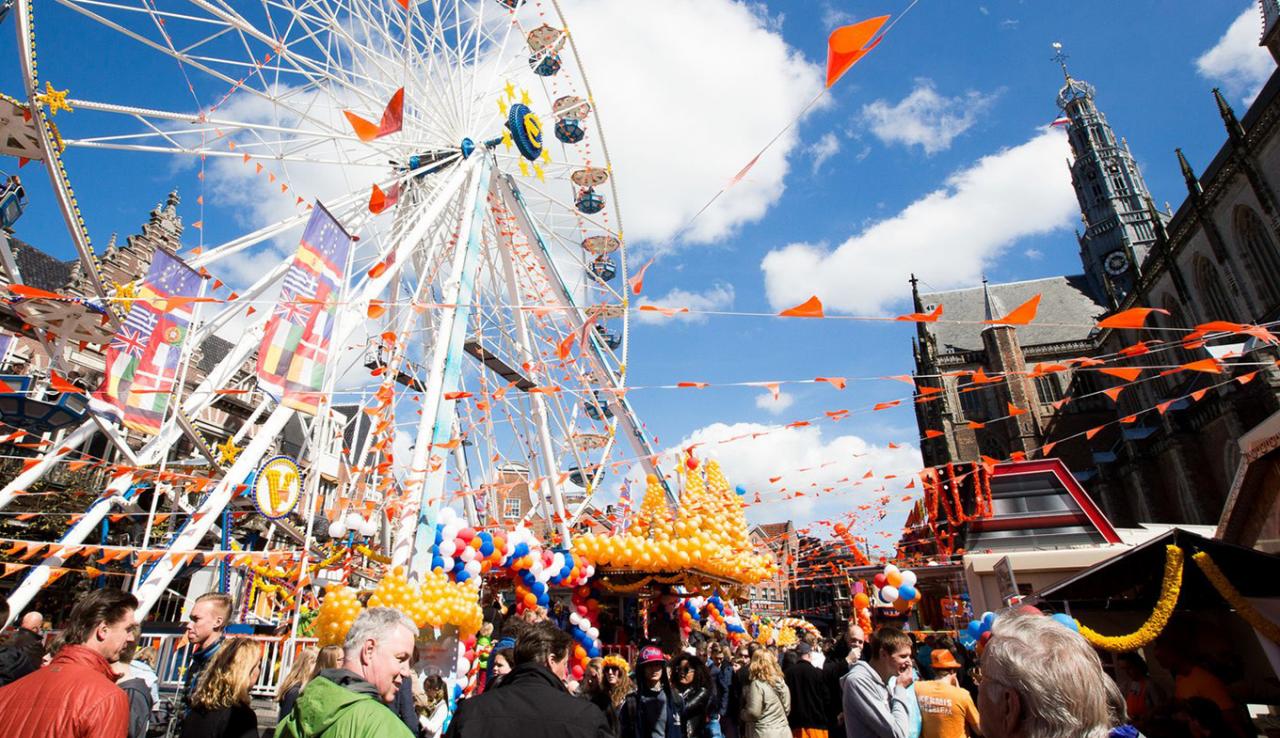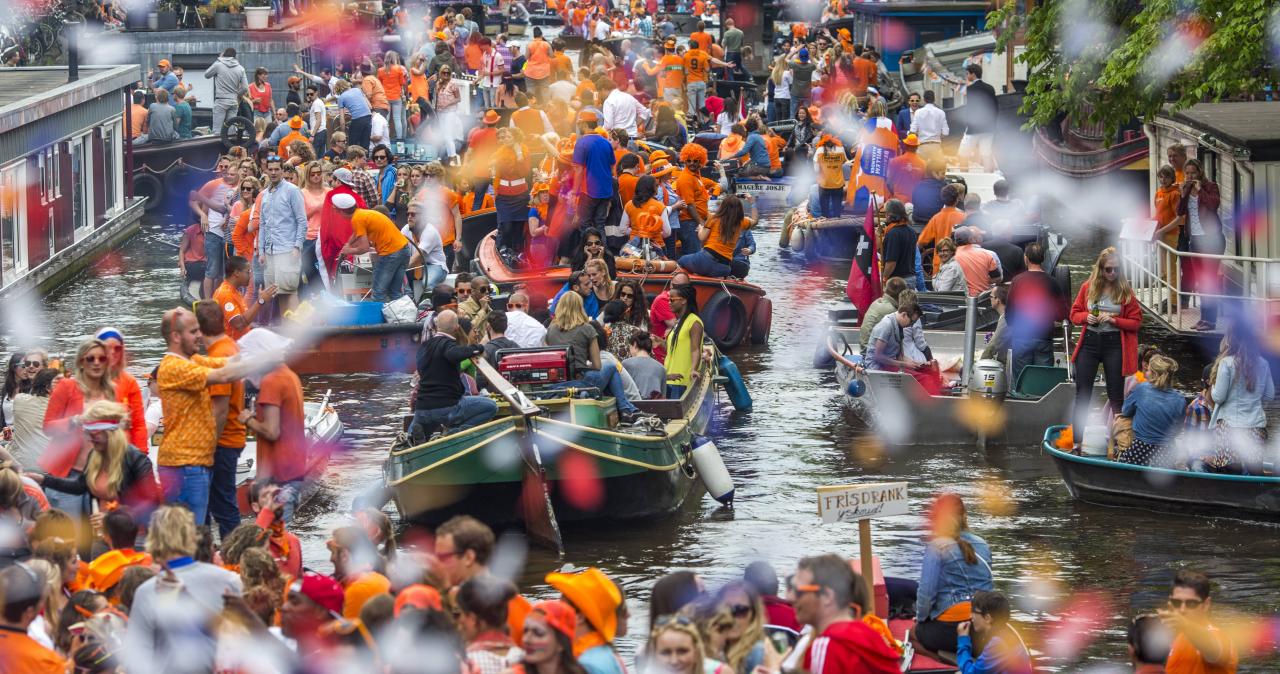
King’s Day Netherlands, a vibrant and colorful holiday, is a testament to Dutch national pride and unity. Celebrated annually on April 27th, the festivities are a riot of orange clothing, flags, and decorations, with music, parades, and street parties filling the air with joy and camaraderie.
With its roots in the 16th century, King’s Day has evolved into a beloved tradition that reflects Dutch values and identity. The day is dedicated to King Willem-Alexander, the current monarch of the Netherlands, and serves as a symbol of national unity and patriotism.
History and Origin of King’s Day

King’s Day in the Netherlands, formerly known as Queen’s Day, has its roots in the 19th century. The holiday originated on August 31, 1885, as Princess Wilhelmina’s birthday, the future Queen of the Netherlands. In 1949, after Wilhelmina’s abdication, the holiday was renamed Queen’s Day and celebrated on April 30, the birthday of Queen Juliana.
In 2013, when King Willem-Alexander ascended to the throne, the holiday was renamed King’s Day and celebrated on April 27, the King’s birthday. The change in the name and date reflects the transition from a monarchy led by a Queen to one led by a King.
Anecdotes and Traditions
King’s Day is a day of celebration and merriment in the Netherlands. The holiday is marked by vibrant orange clothing, flags, and decorations, representing the national color of the Netherlands. People take to the streets to enjoy music, parades, and street parties, creating a lively and festive atmosphere.
Festivities and Celebrations: King’s Day Netherlands
King’s Day is a time for the Dutch people to come together and celebrate their national identity. The festivities typically include:
- Wearing orange clothing, flags, and decorations
- Participating in parades and street parties
- Enjoying music, food, and drinks
- Visiting flea markets and open-air stalls
The most popular color on King’s Day is orange, which represents the royal family and the Dutch national flag. People wear orange shirts, hats, scarves, and even paint their faces orange to show their support for the King and the country.
Music, Parades, and Street Parties, King’s day netherlands
Music plays a significant role in King’s Day celebrations. Throughout the day, streets are filled with live music from DJs, bands, and performers. Parades are also common, featuring floats, marching bands, and other entertainment.
Street parties are a major part of the festivities, with people gathering in parks, squares, and streets to enjoy food, drinks, and live music. The atmosphere is lively and friendly, with people of all ages coming together to celebrate.
King’s Day Market

One of the unique aspects of King’s Day is the tradition of flea markets and open-air stalls. On this day, people are allowed to sell their used goods without a permit, creating a vast and colorful market throughout the country.
The King’s Day market is a great place to find unique items, antiques, and bargains. People sell everything from clothes and furniture to toys and books. It’s also a great way to experience the festive atmosphere and interact with the locals.
Economic and Social Impact
The King’s Day market has a significant economic and social impact on the Netherlands. It provides an opportunity for people to declutter their homes, make some extra money, and find unique items. It also fosters a sense of community and encourages people to interact with each other.
Cultural Significance
King’s Day is more than just a celebration of the King’s birthday; it’s a day for the Dutch people to come together and celebrate their national identity. The holiday reflects Dutch values of unity, patriotism, and a strong sense of community.
King’s Day is a time for the Dutch to show their pride in their country and their monarchy. It’s a day to celebrate their history, traditions, and culture. The holiday brings people together from all walks of life, creating a sense of unity and belonging.
Promoting Unity and Patriotism
King’s Day plays a vital role in promoting unity and patriotism among the Dutch people. The shared experience of celebrating their King and country helps to strengthen the bonds between citizens.
The holiday also fosters a sense of national pride. The Dutch flag, orange clothing, and other symbols of the Netherlands are proudly displayed, creating a visible representation of the country’s unity and identity.
International Recognition
King’s Day is not only celebrated in the Netherlands but also recognized and celebrated in other parts of the world. The holiday has gained international visibility thanks to social media and globalization.
In recent years, King’s Day has been celebrated in cities such as London, New York, and Tokyo. Dutch communities and organizations abroad often host events and parties to mark the occasion.
Impact of Social Media
Social media has played a significant role in increasing the international visibility of King’s Day. Images and videos of the colorful celebrations and festivities are shared widely on social media platforms, capturing the attention of people around the world.
The use of hashtags such as #KingsDay and #Oranjegekte (Orange Madness) has helped to create a global online community of people celebrating the holiday.
Final Summary

King’s Day Netherlands is not just a celebration; it’s an embodiment of Dutch culture and spirit. The infectious energy, the shared experiences, and the sense of community are what make this holiday so special. Whether you’re a local or a visitor, immerse yourself in the vibrant atmosphere and let the spirit of King’s Day fill you with joy and a deep appreciation for Dutch heritage.
FAQ Resource
When is King’s Day celebrated?
King’s Day is celebrated annually on April 27th in the Netherlands.
What is the significance of orange on King’s Day?
Orange is the national color of the Netherlands and is associated with the royal family. On King’s Day, people wear orange clothing, decorate their homes and streets with orange flags and bunting, and even dye their hair orange.
What are some popular activities on King’s Day?
King’s Day is a day for outdoor festivities, with music, parades, street parties, and flea markets filling the streets. People also enjoy traditional Dutch treats like ‘oranjebitter’ (orange liqueur) and ‘stroopwafels’ (syrup waffles).